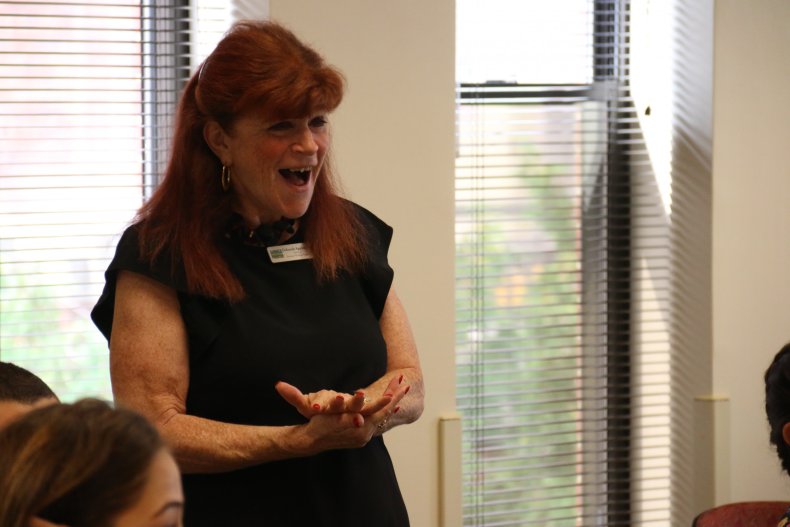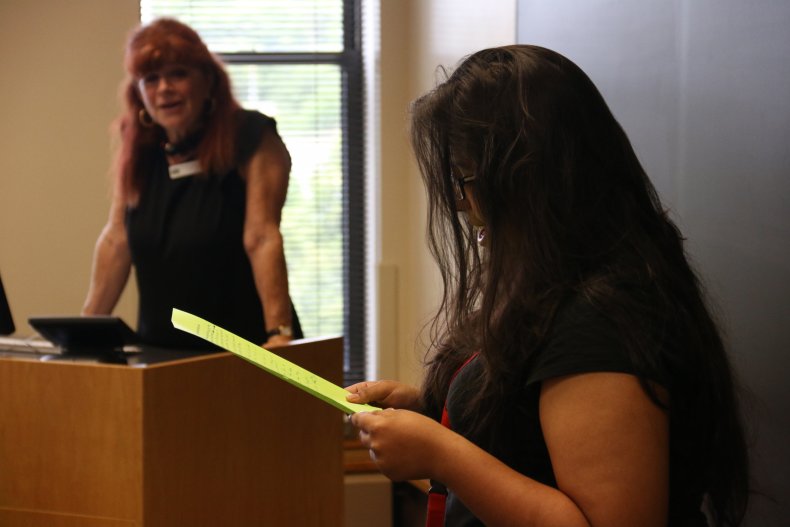‘I’ve Become a Reluctant Warrior Against Cancel Culture’

[ad_1]
I am a teacher who loves teaching, but as the new school year begins, I have become a reluctant culture warrior. I am fighting against a reflexive cancel culture that calls for the banning of books and authors in often capricious ways. And I am convinced that it is our students who will lose in this war.
For decades, I have woven my twin passions of literature and educating adolescents into a rewarding practice of reading with young people. I believe in the power of literature to move us and to transform us. That belief led me to become a high school English teacher and eventually, a college professor in Minnesota, a teacher of future teachers of literature.
In my own classrooms, I have seen the power in Art Spiegelman’s “Maus”, recently banned from school libraries in Tennessee, as students come to grip with the horrors of the Holocaust in a classroom full of trust and bravery. I have listened to passionate horror discussions about race after students read “The Hate You Give” which was banned in schools in Katy, Texas in 2018 and is now only available with parental permission. The same book has regularly placed in The American Library Association’s Top 10 Most Challenged Books of the year since. And yes, I have seen the benefit of studying the perpetually challenged “To Kill a Mockingbird.” I have heard students tell me that they have waited their whole reading lives to encounter a work by a writer who reflects their heritage, as they read Toni Morrison, Sherman Alexie, James Baldwin, Zora Neale Hurston, or other authors of color, who now are among writers whose work has been challenged and banned by school boards across America.
Getty/iStock
My willingness to fight hard for the continued presence of these targeted texts in my classroom is rooted in the importance of lessons that I and my students have learned from them, lessons that I want others to have the opportunity to learn. For example, reading John Steinbeck’s “Of Mice and Men” as a socially isolated ninth grader taught me that we are all just one person away from the kind of subject loneliness that the characters in that novel feel. “The Bluest Eye” by Toni Morrison taught me about both the relentless cruelty and resilience that we human beings are capable of, just as I was beginning to suspect the existence of both. Sherman Alexie’s “The Absolutely True Diary of a Part-Time Indian” taught me that my own agonized adolescence was both particular and universal . And that balance of particularity and universality is, I believe, where the ability to connect to others truly begins. As both a new and a veteran teacher, watching students articulate their growing empathy tow ard Tom Robinson, learning the well-taught lessons of Atticus Finch in “To Kill a Mockingbird” taught me some there are merits to a challenged and dated texts that are worth preserving.
But now, choosing which books to teach my students has become an agonizing task with political, professional, and ethical dimensions. I worry that everything from text selection, the inclusion of controversial subjects, author biography, and potentially ‘triggering topics” will all conspire to change my classroom from a safe and comfortable, yet challenging, place of learning to one filled with wariness, mistrust, and second-guessing.
Like high school classrooms, I have seen how the atmosphere in college and university classrooms is tainted by the effects of this culture war. As a tenured college teacher, I acknowledge that my ability to choose banned or targeted texts is much greater than that of my K-12 colleagues. I no longer receive parental objections or restrictions about content, from school administration. Still, the culture war creeps into my college classroom, with students increasingly willing to challenge my right and the right of my colleagues to choose to teach texts with offensive language, anachronistic world views, or “triggering” subject matter. They seem so much less willing to trust that we will be able to navigate together the tricky ground of these texts. And yet, I think this kind of navigation is precisely what I should be doing with them.
As an experienced teacher, I am used to the predictable censorious complaints about text selection from those who call themselves “cultural conservatives.” Objections to explicit language or inappropriate content have been around as long as books have. During my time teaching high school English, I learned to arm myself with carefully crafted rationales, sensitivity to parents’ perspectives, and backup from professional organizations and fearless librarians. Yet, in recent years I have observed that the movement to ban particular texts has developed a large army of culture warriors, from elected school board officials; local, state, and national politicians; and parents who turned out in droves to raucous school board meetings.
Moreover, this feels like a new war. Increasingly, books with themes about race, gender identity, and sexuality have been banned. A 2022 PEN America study identified that a third of all the books that are currently being removed from classrooms and libraries address LGBTQ issues, while a fifth directly address race and racism.

Deborah Appleman
And, cancel culture has brought formerly revered authors under a kind of scrutiny, based on their personal ideologies or allegations of misconduct, that is unprecedented in its swiftness and single mindedness. This includes authors such as Sherman Alexie, JK Rowling, Junot Diaz, even the holocaust survivor Elie Wiesel.
While I won’t defend or second guess the disconcerting allegations swirling around some of these writers, I will defend the right and perhaps the necessity to separate the author from the text, the artist from the work, and the composer from the music. Canceling them not only punishes the offending author, but it punishes our students by depriving them of valuable reading experiences that are nearly impossible to replicate.
Over recent years, I have observed with mounting concern the aforementioned increase in desire to scrub the literature curriculum of any text that includes language or portrayals that are offensive. Racism, sexism, homophobia and other kinds of prejudice should not be tolerated, but removing all offending texts deprives students from having the necessary conversations to help us learn from our troubled shameful past. I choose to challenge these books by teaching and problematizing them. For example, I have seen how teaching the controversy surrounding texts such “Adventures of Huckleberry Finn” or “To Kill a Mockingbird” can help invite students into important discussions about race, language, social justice and censorship.

Deborah Appleman
If we expect our students to address the political and cultural difficulties of our times with honesty and sincerity, we must show courage and demonstrate trust. Our secondary students need to be invited into the conversation. For example, one high school teacher I know discussed the controversy surrounding Sherman Alexie with his class, and had a discussion about whether they should still read “The Absolutely True Diary of a Parttime Indian.” They did. Another teacher showed the documentary, Born to Trouble, about “Adventures of Huckleberry Finn” and discussed the power of the “n word” and whether its presence in a text should disqualify that text from ever being discussed in a classroom. High school students deserve to be part of conversations, not cancellations. My college students deserve teachers who are willing to stand up to the cultural zeitgeist and challenge them when they don’t want to give a troubled text (or a teacher’s ability to navigate through it) a chance.
These are particularly troubling times for educators. Myself and my fellow teachers find ourselves in a bitterly divided country with ideological discourse reaching a feverish peak. My belief is that to find our way past these perils, our classrooms need to remain spaces where critical thinking is taught, tolerance for different viewpoints is modeled, and the sometimes-harsh truths of our history and literary heritage are openly acknowledged. I am willing to talk frankly with colleagues and parents from all sides of the political spectrum who disagree with me, and other teachers like me. I am prepared to craft strong rationales for the books I am willing to fight for, and I, alongside many of my fellow educators, am ready to fight for them; in our classrooms, in school board rooms, at our state capitols , and in the media.
For the sake of our students, then, teachers must resist the pressures to censor, cancel, and castigate, no matter what sources these pressures emerge from. We have to trust our abilities to be sensitive without pretending that the sources of our discomfort can simply be erased. Erasure, denial, repudiation, and rejection can all leave the hard questions unanswered, and in the present moment, I am convinced that these refusals amount to a serious dereliction at a time when our duty is most required.
I think literature can indeed heal us, but it can also, at its most powerful, help us to feel the hurt of others. Literature dislocates us, disrupts our sense of well-being, and prompts us to confront the uncomfortable. As Kafka wrote ,
“..we need books that affect us like a disaster, that grieve us deeply, like the death of someone we loved more than ourselves, like being banished into forests far from everyone, like a suicide. A book must be the axe for the frozen sea within us. That is my belief.”
That is my belief, too.
Deborah Appleman is the Hollis L. Caswell professor and chair of Educational Studies at Carleton College. She is the author of Literature and the New Culture Wars: Triggers, Cancel Culture, and the Teacher’s Dilemma.
All views expressed in this article are the author’s own.
[ad_2]
Source link





